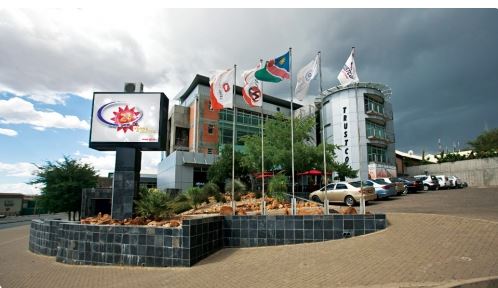NAMIBIA, together with more than 30 other parliamentarians from the European Union (EU) and the Africa-Caribbean-Pacific (ACP) countries, has adopted a resolution on the developmental impact of Economic Partnership Agreements (EPAs) which calls for trust, mutual respect, security and firm guarantees that the interests of developing countries will be served in the controversial trade agreement.
Only one parliamentarian voted against the resolution by the Committee on Economic Development, Finance and Trade of the ACP-EU Joint Parliamentary Assembly at their 17th session in Prague. Swapo MP and Chairperson of the Parliamentary Standing Committee on Economics, Natural Resources and Public Administration, Peya Mushelenga, is representing Namibia at the session in the Czech capital. He sits on the ACP-EU Committee on Economic Development, Finance and Trade and will be part of the Joint Parliamentary Assembly (JPA) when they debate the EPA issue this afternoon. Namibia is under pressure to sign an interim EPA with the EU to ensure quota- and tariff-free access to their markets, but has so far only been willing to provisionally initial it because of several concerns. The resolution says that the atmosphere of trust, mutual respect and security has been damaged during the negotiations, which have already dragged on for 15 months, and calls on the European Commission (EC), EU member states and ACP countries to try their utmost to restore this. EPAs should contain a clause that would allow the agreement to be revised five years after it was signed, the resolution stresses. This will enable countries to determine the impact of the EPA on themselves, as well as on regional development and poverty reduction. It should not merely measure EPA compliancy levels. Instead, EPAs should have a mechanism to allow the amendment or repeal of any aspect of the agreement that undermines a process of regional integration or damages chances of reducing poverty, the resolution emphasises. It furthermore ‘insists’ that EPAs are an ‘instrument for development which should reflect both the national and regional interests and the needs of the ACP countries’ so that they can achieve the Millennium Development Goals (MDGs) and ensure the fundamental human rights like the right to food and the right to access basic public services. According to the resolution, the EC should allow ACP countries to renegotiate contentious issues before signing agreements. ACP negotiators should also have ample time to carefully consider it. EPAs ‘should not be concluded under pressure or in haste as they exceed World Trade Organisation (WTO) requirements,’ the resolution urges.The EU is pressing for the signing of interim EPAs in order to avoid a possible challenge at the WTO due to non-notification. The organisation has been extending trade preferences to the Southern African Development Community (SADC) in breach of WTO rules since a waiver on the Cotonou Agreement expired and is keen to have its trade relations with the regional bloc comply with the WTO. Like the European Parliament, the JPA Committee also urges the EC not to undermine regional integration through the EPAs, to protect infant industries and not to link aid under the 10th European Development Fund to ACP countries’ willingness to sign the EPA. It furthermore wants the EPA to take into account any loss of duties or customs revenue ACP countries might suffer. African ACP countries can lose up to US$359 million a year in duties and customs revenue during the first phase of EPA liberalisation.
Stay informed with The Namibian – your source for credible journalism. Get in-depth reporting and opinions for
only N$85 a month. Invest in journalism, invest in democracy –
Subscribe Now!










